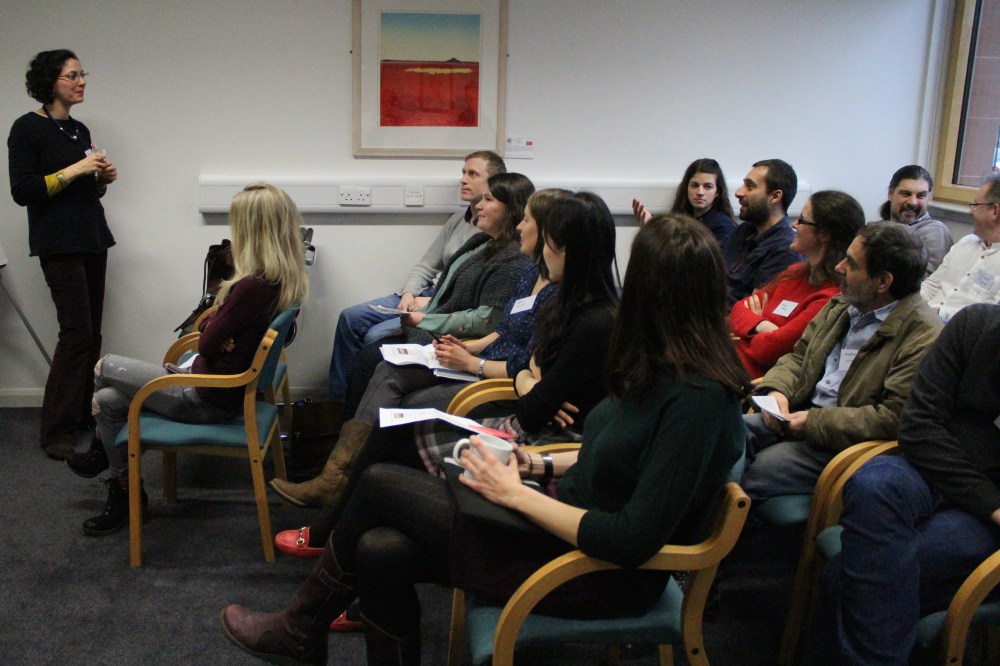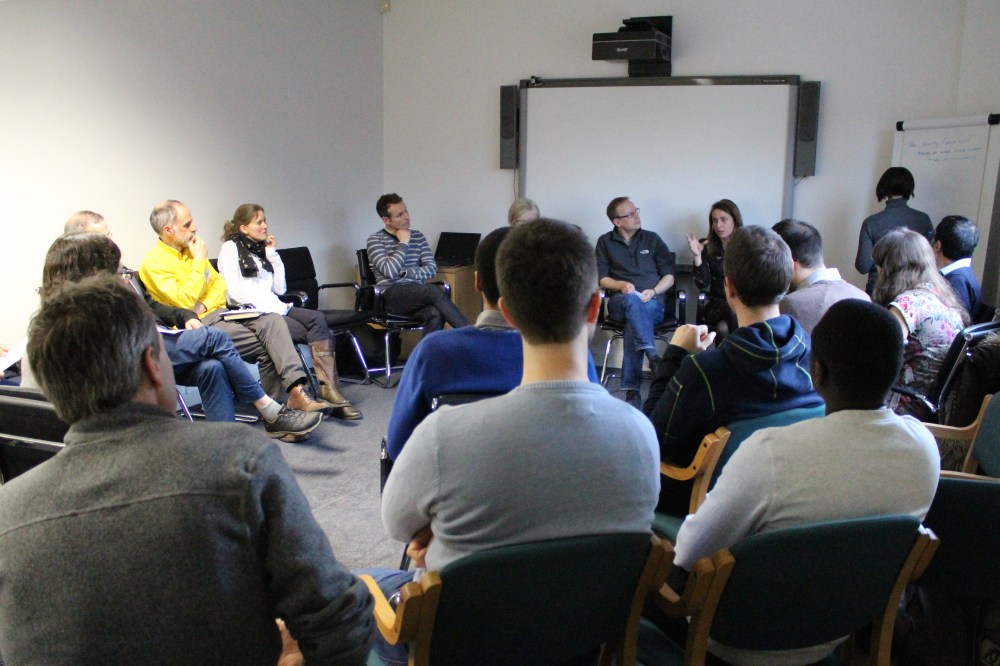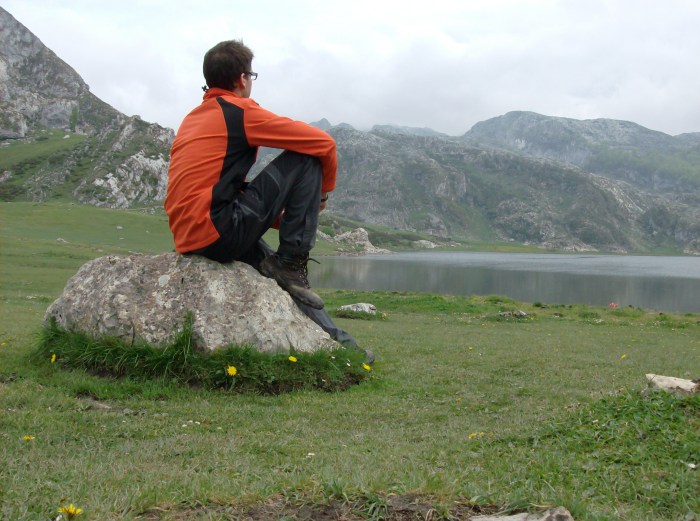The work-life balance: thoughts from IBAHCM Director Prof. Dan Haydon
Striking the ideal work-life balance is a challenge faced by many in academia. In this guest post, Institute of Biodiversity, Animal Health and Comparative Medicine Director Professor Daniel (Dan) Haydon shares his thoughts on the topic. Originally published on the IBAHCM blog Naturally Speaking, and with more of a focus on post-PhD research, we are re-blogging it here as we feel it contains valuable insight and advice for PGRs. At our annual Institute awayday earlier this year there were a series of structured discussions about how best to manage personal ‘resilience’. A recurring theme was the maintenance of a sensible, and sustainable, work-life balance. As the director of our Research Institute, I hear about a broad range of worries from all parts of the organization, so I was not surprised that both of these matters concerned large numbers of people. However, I was disturbed to learn about some misconceptions—particularly among our graduate students and other early career researchers—that could lead to the erosion of resilience and encourage unsustainable longer-term work practices.
Personal resilience discussion at the Institute awayday 2017. Images by Mary Ryan.
So what is normal?
It is normal to set specific goals to achieve during your position, often through discussion with your supervisor/line manager. Depending on the nature of your work, there may be more or less flexibility in terms of what this means for your working pattern.
If you cannot complete these goals within the originally agreed schedule, you should discuss scaling them down, or agree additional paid hours to complete them. It is not reasonable that you are expected to find these hours out of your ‘life’ schedule. If your line manager persistently places demands on you that cannot be completed within your ‘normal working week’ a frank discussion of what is reasonable is called for. If you are not comfortable with having such a conversation with your line-manager then talk with your assessor, mentor, peers, or more senior colleagues.
You may have less formal working arrangements, perhaps being left to your own devices much of the time. Yet you should have at least some broad-scale objectives, and perhaps distant timelines by which they should be met. If you feel this is not the case, or you’d prefer to work towards shorter-term objectives, you should seek clarification. Start with your line manager/supervisor, and if this doesn’t deliver some clarity talk with your assessor, mentor, peers, or more senior colleagues.
It is certainly possible that you may be asked to work harder at some times compared to others (for example, for field-based projects), but keep an eye on the average. You shouldn’t be asked to work ‘overtime’ for long-periods of time, and if you think such a situation is likely to arise, discuss this in advance and devise some alternative options for how you will manage it. If you do put in a large amount of unpaid ‘overtime’ you should feel entitled to take extra time-off.
The challenge is that many of us work towards long-term goals within long timeframes, and set our own shorter-term objectives and timelines within this. This raises the thorny question: how hard should one reasonably work?
Like it or not, your relationship with ‘work’ is one of the more important things in your life, and like all relationships, it is personal. There are lots of different views, and while many are fine, some that I have heard discussed are not.
You should not feel you have to work more than 37.5 hours per week. You may choose to work more, but you should not feel coerced into doing so.
You should not feel you must work more than 37.5 hours per week just because ‘everyone else/my friend/my supervisor/someone I admire’ does.
You should not feel you must work more than 37.5 hours per week because that is clearly what ‘successful’ people do.
You should not feel you have to work more than 37.5 hours per week because you simply can’t achieve your long-term goals, or meet your shorter-term objectives, without doing so. (If this is the case, it likely means that your goals should be reconsidered, or you should investigate alternative strategies for completing tasks.)
If any of these are your current practice, you should talk with someone (see above).
How to come up with something better?
(The following is only my personal view.)
Try to develop an ‘objectives schedule’: work out your long-term, more general goals and when you want to achieve them by, and then identify the minimum ‘shorter-term’ objectives you need to complete in order to be (reasonably) sure of securing them. If you are ‘on-track’ and within your objectives schedule, you have the option of taking some time off if you want to, and you should seriously consider doing so. Bear in mind that there are diminishing returns on time spent at work and what you actually get done—taking time-off can do wonders for your perspective and productivity. Although you may choose to push on with additional objectives, you should not feel you have to. Failing to recognize when one has ‘done enough for the time-being’ is one of the most common traps I see myself (and others) falling into.
It is also important to make sure you count all the objectives that you are actually working at. Activities such as talking to people, reading a paper, learning a new technique, writing a letter of reference, polishing your teaching notes, mentoring a student, helping your peers with an analysis, or organizing a seminar, are of course sensible objectives even if they are not necessarily related directly to your research. Count them and give yourself credit for them.
Some people work more time-efficiently than others because of how they manage their tasks. Some people also work on things that are fundamentally less time consuming. It is possible your objectives schedule is not consistent with the work-life balance you need, in which case you’ll have to re-think it and/or discuss with others.
I actually rather enjoy many aspects of my job, so I’d often rather do the bits of work I enjoy on a wet weekend rather than quite a few of the things on my personal life to-do list. This isn’t sad, miserable or coerced, it’s rather a blessing, and while this is absolutely no reason to expect (or even desire) similar behaviour in others, I expect my choices to be respected as I respect theirs. It is a lot easier to manage your own relationship with your work than persuade the rest of the world to work the way you want.
It is the way of things that some people will spend more hours working than others. All sorts of factors cause this variance, including: differences in people’s relationships to work, differences in time management strategies, domestic responsibilities, and recreational passions. This can give rise to the perception of an ‘unequal playing field’. There are, of course, endless reasons why this perception might arise, and ‘time put in’ is just one of them. But it is reasonable to assume that all other things being equal, one achieves one’s goals faster if you front-load the time devoted to achieving them. I think the important point here is that while the goal may be reached faster, it doesn’t change the nature of the goal. A good scientist will still achieve their goals, but for all manner of reasons, it takes some of us longer than others. Attempting to climb very high mountains quickly does not always increase our chances of getting to the top. The increasing recognition by organisations like the Wellcome Trust that we should be appraised on the quality of our achievements, and not the rate at which we achieve them, is very welcome.
About the most corrosive (and common) thing I’ve encountered over the years is the malignant sense of inadequacy and despair that arises from a researcher comparing themselves to others, which can stir them into a destructive over-drive. You are (I imagine!) working hard and learning about something few other people are thinking about. Within your unique experiential, scientific and psychological contexts, you are generating ideas and overcoming challenges in entirely new combinations. All scientific projects and scientists are different, and no good will come from comparing yourself to others.
As researchers and teachers we are, for the most part, extremely fortunate to be working on interesting and rewarding problems within talented teams of (mostly!) reasonable people and (often) with flexible work hours. I have always felt strongly that these are the basic ingredients of doing things that can be both meaningful and fun. We have a responsibility to ourselves and to our colleagues to make sure we don’t lose sight of the fun. It is too important and privileged an opportunity to screw-up.
My own perspectives on this difficult subject are continually evolving, and are always improved by hearing the views and experiences of others, so I welcome any conversation on this subject in the forum offered below or any other. One thing is for sure—if you are wondering about this—you are not alone.
If you have any comments on Prof. Haydon’s post, or personal experiences to share, please comment below or share your thoughts on Twitter.
Feature image: Balance by Tom Coates (CC BY-NC 2.0), via Flickr.








